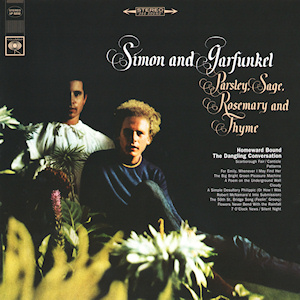
Parsley, Sage, Rosemary and Thyme is the third studio album by the American folk rock duo Simon & Garfunkel. Produced by Bob Johnston, the album was released on October 24, 1966, in the United States by Columbia Records. Following the success of the re-release of their debut single "The Sound of Silence", Simon & Garfunkel regrouped after a time apart while Columbia issued their second album, a rushed collection titled Sounds of Silence. For their third album, the duo spent almost three months in the studio working on instrumentation and production.

Simon and Garfunkel's Greatest Hits is the first compilation album from Simon & Garfunkel, which was released on June 14, 1972, two years after Simon & Garfunkel had parted ways.
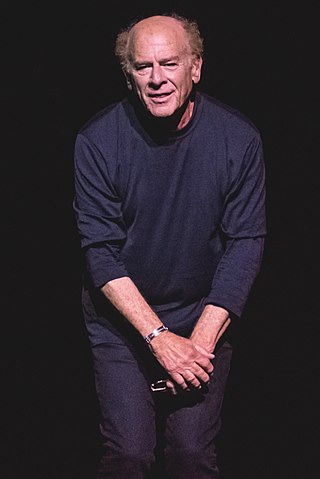
Arthur Ira Garfunkel is an American singer, actor and poet who is best known for his partnership with Paul Simon in the folk rock duo Simon & Garfunkel. Born in Forest Hills, Queens, New York, Garfunkel became acquainted with Simon through an elementary school play, a production of Alice in Wonderland, and sought a partnership. Their combined presence in music began in the 1950s, and throughout the 1960s the duo of Simon & Garfunkel achieved great chart success with tracks such as "The Sound of Silence", "Mrs. Robinson", "Scarborough Fair", "The Boxer" and "Bridge over Troubled Water". The latter song's title also served as the name of Simon & Garfunkel's final album in 1970. Simon & Garfunkel split for personal reasons, but the pair have occasionally reunited in the years since. Both men experienced success in solo careers in the years following the duo's breakup.

"Bridge over Troubled Water" is a song by the American folk rock duo Simon & Garfunkel, released in January 1970 as the second single from their fifth studio album, Bridge over Troubled Water (1970). It was written by Paul Simon and produced by Simon, Art Garfunkel and Roy Halee.

Simon & Garfunkel's Old Friends: Live On Stage is the third live album and documentary from their highly successful "Old Friends" reunion concert tour of 2003, with The Everly Brothers as special guests. The "double album" was available as either a 2-CD set or a DVD, separately, or together as a 3-disc package. Both the 2-CD set and DVD were released in December 2004.
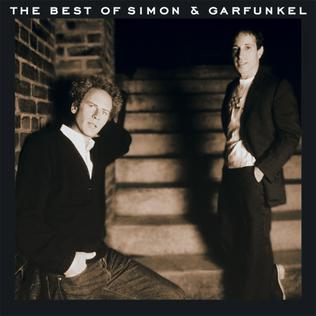
The Best of Simon and Garfunkel is the fifth compilation album of greatest hits by Simon & Garfunkel, released by Columbia Records in 1999, containing 20 tracks.

Live 1969 is the fourth live album by Simon & Garfunkel, released through Columbia Records. It consists of live recordings captured on the duo's final North American tour, prior to the release of their Bridge over Troubled Water album. Fifteen of the album's seventeen tracks are previously unreleased, with the exceptions being the live versions of "For Emily, Whenever I May Find Her" and "Kathy's Song", both of which initially appeared on Simon & Garfunkel's 1972 Greatest Hits album.
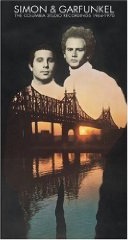
The Columbia Studio Recordings (1964–1970) is the third box set of Simon & Garfunkel recordings, released in 2001 by Columbia Records. This 5-CD set contains all of their studio albums from 1964 to 1970. The CDs are packaged in miniature recreations of the original LP jackets, and an annotated booklet is also included.
Donald John Sebesky was an American composer, arranger, conductor, and jazz trombonist. He was a multi-instrumentalist and could play a number of other instruments: keyboards, electric piano, organ, accordion, and clavinet.
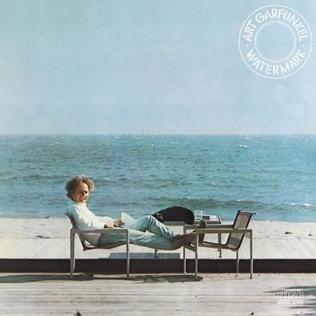
Watermark is the third solo studio album by Art Garfunkel, released in October 1977 on Columbia Records. The first single, "Crying in My Sleep", failed to chart, but the follow-up, a version of "(What a) Wonderful World" reached #17 on the Billboard Hot 100 chart and #1 on the Adult Contemporary chart. The songs "Watermark" and "Paper Chase" had previously been performed by Richard Harris on his albums A Tramp Shining and The Yard Went On Forever. Watermark is also noted as being the final recording sessions of legendary saxophonist Paul Desmond who died of lung cancer shortly thereafter. Actress Laurie Bird, Garfunkel's girlfriend, made the album cover's photograph. Some promotional copies of the single "Crying in My Sleep", released in advance of the album, referred to the album as Art Garfunkel, suggesting Garfunkel initially planned for the album to be self-titled.
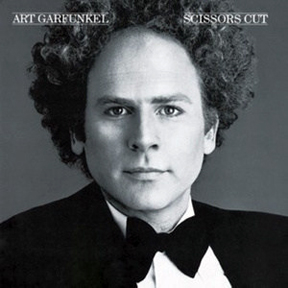
Scissors Cut is the fifth solo studio album by Art Garfunkel. It was released in August 1981 on Columbia Records; it was his second album to miss the US Billboard top 40 and his second album to contain no US top 40 singles. In the month following its release, Garfunkel reunited with former partner Paul Simon for their famous 1981 Concert in Central Park.

Bridge over Troubled Water is the fifth and final studio album by the American folk rock duo Simon & Garfunkel, released on January 26, 1970, by Columbia Records. Following the duo's soundtrack for The Graduate, Art Garfunkel took an acting role in the film Catch-22, while Paul Simon worked on the songs, writing all tracks except Felice and Boudleaux Bryant's "Bye Bye Love".
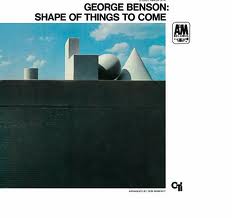
Shape of Things to Come is the fifth studio album by the American guitarist George Benson, recorded in 1968 and arranged by Don Sebesky. It was his first album for A&M Records and his first album to be produced by Creed Taylor, who would remain his producer until 1976.
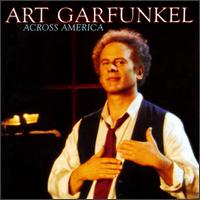
Across America is the only live album by American singer Art Garfunkel. It is the only official live recording he has released to date. The album was recorded live over two evenings - 12 and 13 April 1996 in The Registry Hall at Ellis Island, New York.

The Simon and Garfunkel Collection: 17 of Their All-Time Greatest Recordings is the second compilation album of greatest hits by Simon & Garfunkel, first issued in November 1981, 2 months after performing at the landmark The Concert in Central Park.

20 Greatest Hits is the third compilation album of greatest hits by Simon & Garfunkel, released in Australia and Asia in August 1991.

The Definitive Simon and Garfunkel is the fourth compilation album of greatest hits by the folk duo Simon & Garfunkel, released in UK & Europe in 1991.

Road Song is an album by the jazz guitarist Wes Montgomery, released in 1968. It reached number one on the Billboard Jazz album chart and number 39 on the R&B chart. It also reached number 94 on the Billboard 200. It was his final recording before his death of a heart attack on June 15, 1968.

Electric Connection is one of four American recordings Jean-Luc Ponty made in 1969. In 1969 was it was released on vinyl by World Pacific Jazz and reissued in 1993 on CD by One Way Records.

Simon & Garfunkel: The Complete Albums Collection is the fifth box set of Simon & Garfunkel recordings. This 12-CD Set contains all five of their studio albums from 1964 to 1970, as well as the soundtrack album from The Graduate from 1968, the 1972 Simon and Garfunkel's Greatest Hits compilation album, and four previously released live concert recordings. The CDs are packaged in miniature recreations of the original LP jackets, and an annotated booklet is included.



















